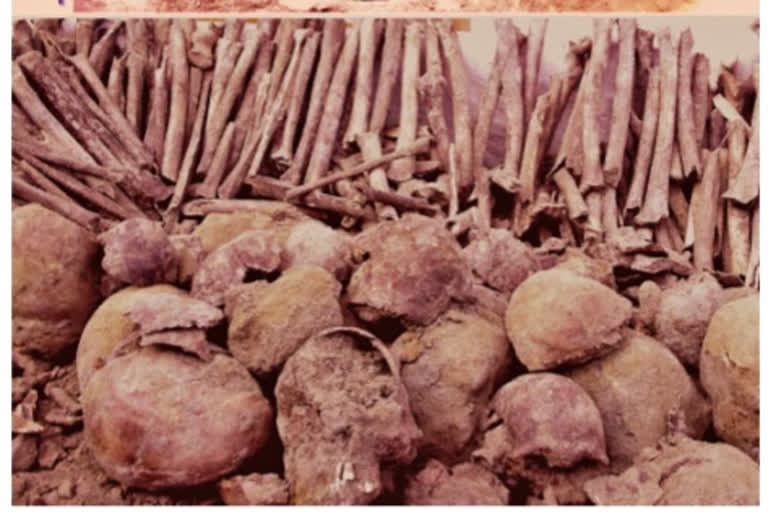Varanasi: Latest DNA-based evidence confirms the human remains found dumped in an abandoned well in the Ajnala town of Punjab’s Amritsar belonged to 246 young Indian soldiers who were brutally killed after they revolted against the British during the 1857 Indian uprising and belonged to the Gangetic plains, researchers said Thursday.
The study, published in the journal Frontiers in Genetics on Thursday, identified the individual remains as belonging to that of soldiers of the 26th Native Bengal Infantry regiment of the British Indian Army. The new evidence has put a lid on all hypotheses and folklore swirling around the Sepoy Mutiny in this Punjab district.
According to historians, a total of 500 soldiers belonging to the 26th regiment of Bengal's native infantry, who were stationed in Punjab's (currently in Pakistan) Mian Mir, had opened a front against the British during the revolt. Under British Deputy Commissioner Frederick Henry Cooper had carried out the killings of 218 among the group by shooting them. The 282, who had survived, had been arrested and taken to Ajnala in Amritsar, where 217 were shot to death and thrown in the concerned well.
It is said that the 45 who remained were buried alive inside the well, and the structure was sealed off using mud and lime. The study kicked off in 2014 when the well was discovered beneath a Gurudwara.
Also read: Not rewriting history but correcting the facts, says Kiren Rijiju
Speaking to ETV Bharat, the lead author of the paper, Dr. J.S Sehrawat, said that the results obtained from the research were in line with historical evidence. "Evidence states that soldiers of the 26th Main Bengal Infantry Battalion were stationed in Mian-Mir, Pakistan and after the mutiny, they were killed by the British near Ajnala," he noted.
Dr. K. Bhagaraj, Chief Scientist of CCMB and Director, Center for DNA Fingerprinting Aid Diagnostics, Hyderabad, said, "Through DNA and isotope analysis, we have been able to find out that these skeletons are not of the people of Punjab or Pakistan but of the people of UP, Bihar and West Bengal," he added. Professor of Zoology of BHU, Dnyaneshwar Choubey has played an important role in this research, he also said.
Professor AK Tripathi, Director of the Institute of Science at Benaras Hindu University, said the study shows the usefulness of DNA-based techniques to investigate ancient myths.



